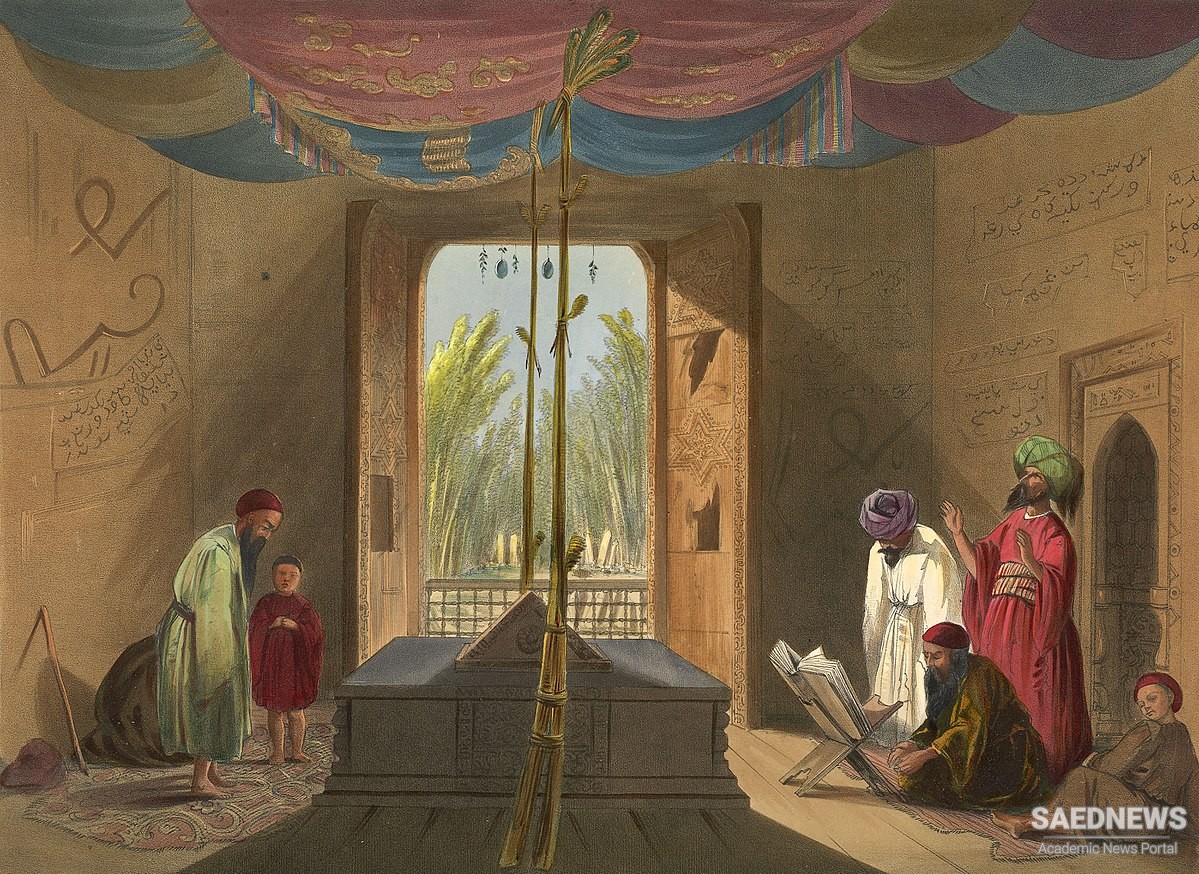Mahmud died in 421/1030, and his son Muhammad, who had been governor of Guzgan, succeeded in Ghazna according to his father's will. The situation presents parallels with Sebuk-Tegin's choice of Isma'il in preference to Mahmud, for Mas'ud had been governor of Herat and was by far the most experienced and capable of Mahmud's sons; but he had latterly been on bad terms with his father, and so was passed over. As events fell out, Mas'ud's reputation as a war leader, and his recent exploits in Jibal and the west, gained him the support of the Ghaznavid army, and this was the all-important factor; in a military state like that of the Ghaznavids, a sultan without the full confidence of the army was inconceivable. As Mas'ud came eastwards from Ray to Ghazna, his uncle Yusuf b. Sebiik-Tegin and the other great commanders all rallied to him, and Muhammad's first reign ended after only a few months (he was briefly raised to the throne again in 432/1041 by the rebels who murdered Mas'ud).
The new sultan Mas'ud was a brave soldier, but in many ways he lacked his father's strength of character. His advisers complained of his capriciousness and deviousness, his refusal to consider unpalatable advice and his dependence on a crowd of sycophants, led by the 'arid Abu Sahl Zauzani, whom Baihaqi regards as a maleficent influence in the state. Indeed, in his early years on the throne, Mas'ud conducted a vendetta against all those connected with his father's regime whom he considered had turned Mahmud against him. Not a few of these Mahmudiydn (to use Baihaqi term) were hounded to disgrace or death: the former vizier Hasanak was executed on a trumped-up charge of contacts with the Fatimids; Mas'ud's uncle Yusuf b. Sebuk-Tegin was arrested and jailed; and the assassination of the Khwarazm-Shah Altun-Tash was attempted (see below). Conversely, the former vizier Maimandi, who had incurred Mahmud's displeasure and had latterly been imprisoned, was now released and restored to office for the two years preceding his death in 424/1033. His successor in the vizierate, Ahmad b. 'Abd al-Samad, soon incurred Mas'ud's hostility because of his independence and criticism of the sultan's unwise policies.
Mas'ud was determined that his father's achievement in India should be safeguarded; the death of Mahmud should not mean that the Indian princes could sit back and breathe again. Mas'ud had to give up the idea of going to India in 422/1031, because of the danger on the Oxus from the Qarakhanid 'AK-Tegin and the Saljuqs, but in 424/1033'he led an expedition which captured Sarsuti or Sarsawa, a fortress which his father had been unable to take. In the winter of 429/1037-8, he insisted on personally leading an expedition to the allegedly impregnable "Virgin fortress" of Hans! near Delhi, in fulfilment of a vow he had made, even though the situation in Khurasan and the west was at that time highly menacing. We can, indeed, detect a constant tension in Mas'ud's reign between the claims of India, where the Ghaznavids had gained so much glory, and those of Khurasan, where the mounting intensity of the Saljuq incursions threatened the loss of all the western lands. The dilemma was made worse for Mas'ud by the instability of affairs in the Punjab. In 422/1031 he had sent out one Ahmad Inal-Tegin, formerly treasurer to Mahmud, as Commander-in-Chief of the Indian garrisons. Because of earlier ill-treatment at Mas'ud's hands, he seized the opportunity to rebel, rallying the turbulent Turkish ghazi elements of the garrison towns. Mas'ud had to send a force under the Indian commander Tilak before Ahmad Inal-Tegin's revolt could be quelled (425/1034).
The succession disputes in the tributary state of Makran have been already noted. At the beginning of his reign, Mas'ud deputed his uncle Yusuf b. Sebuk-Tegin to march southwards from Bust with an army, reduce the rebellious governor of Qusdar, who was two years behind with his tribute, and then go on to Makran. One of the disputants over the succession, Abu'l-Mu'askar, had appealed to Mas'ud for help; Yusuf's army was now able to help him successfully achieve the throne (422/1031). However, there was a deeper motive behind Mas'ud's despatch of his uncle to Baluchistan. When Mahmud died, Yusuf had in the first place supported Muhammad, and Mas'ud, with his intensely suspicious nature, could never forgive him nor trust him thereafter. He deliberately sent Yusuf away from the centre of power until his own position in Ghazna was secure; then, when Yusuf returned, he was arrested, dying in prison shortly afterwards. The success of his troops in Makran encouraged the sultan to intervene in the Buyid province of Kirman, which bordered on his own dependent territories of Sistan and Makran. Being already master of Ray and Jibal, the acquisition of Kirman would have rounded off Ghaznavid territory in central Iran. Mas'ud proclaimed to the new caliph al-Qa'im's envoy that this project was all part of a grand design, one involving a general onslaught on the Buyids; 'Uman would be attacked from Makran, and ultimately, Ghaznavid armies would sweep westwards, liberate the 'Abbasids from Buyid tutelage and attack the infidel Byzantines and heretical Fatimids. Naturally, the eruption of the Saljuqs into Khurasan made these plans unfulfilled dreams. Nor was the Kirman venture successful. The army which had been victorious in Makran did in 424/1033 occupy Kirman. But the Ghaznavids' financial exactions there made the Kirmanis long once more for Buyid rule. 'Imad al-Dln Abu Kalijar sent from Fars an army under his vizier Bahram b. Mafinna, and in 425/1034 the Ghaznavid garrison was ignominiously ejected and had to retreat to Nishapur.


 Rule and Death of Cyrus the Great
Rule and Death of Cyrus the Great














































